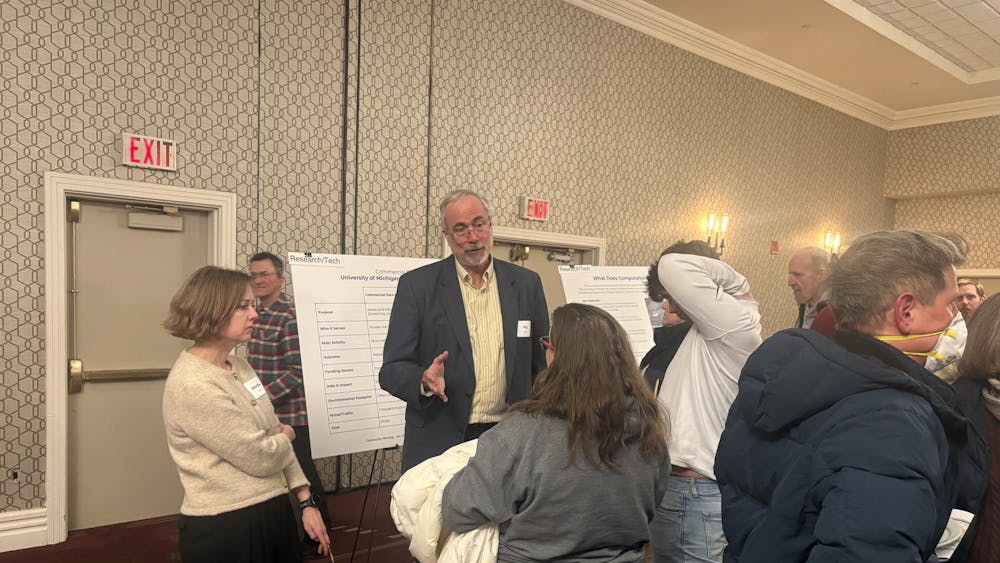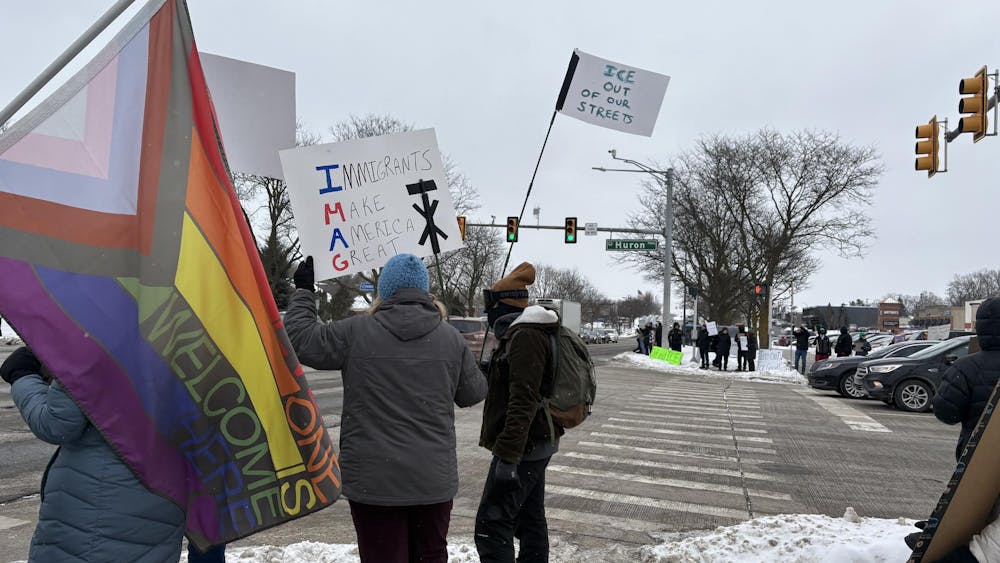Campus Pride, an organization dedicated to fostering LGBT-inclusive college campuses in the U.S., ranks Eastern Michigan University in the top 100 as one of the most LGBT inclusive schools in the country.
“When we say we’re trying to create an inclusive queer campus, it’s really intentional,” Mary Larkin, the program coordinator for the LGBT resource center at EMU, said. To be ranked by Campus Pride, EMU has to take an extensive survey every two years.
On Thursday Oct. 10, Larkin held a talk as a part of the SAFE campaign to help encourage a more inclusive environment at EMU. The presentation has been given to area high schools, including Saline and Milan. It has also been given to students studying social work, education and health education at EMU.
“Not everyone wants to hug a gay person,” Larkin said.
Larkin went on to say goal of the SAFE talks is to help people create a safe environment for LGBT students in a way that still lets people feel like they can hold on to their moral code.
The presentation gives people a chance to discuss their thoughts on gay adoption, HIV/AIDS within the gay community and the intersections and differences between gender and sexuality.
As Larkin told about discrimination against her as she shopped for clothing at a department store. Marissa Stankey, a social work major, identified with Larkin’s story.
“I have that problem all the time when I go to other stores but not that store,” said Stankey said.
EMU has a score of 4.5 on the Campus Pride index, but Larkin is forthright with EMU’s shortcomings. She said that she thinks EMU is a top 100 LGBT school but that EMU still has some issues accommodating transgender students.
Larkin is optimistic about EMU becoming more inclusive.
“There has never been a ‘No’ or a ‘We absolutely cannot do that,’” Larkin said about EMU’s response to proposed changes. Larkin thinks that most of the issues with accommodating transgender students stem from problems in the systems and processes of the university, and that fixing these issues is mostly a matter of money.









